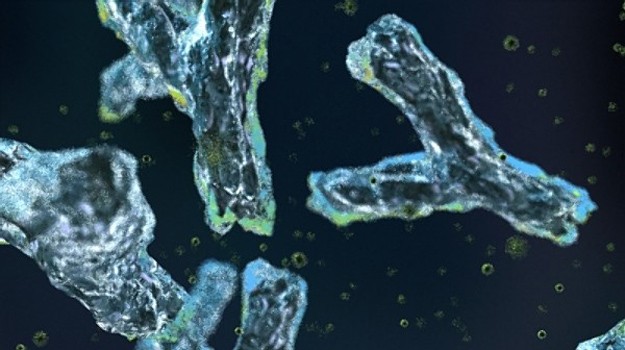How the Fight is Progressing in 2016
Frank Magliochetti Report
Bacteria that are resistant to common antibiotics have been around for some time. Unfortunately, they have  become more widespread and more deadly than they were in times past. Following are some new major developments that may result in mankind either succumbing to antibiotic resistant bacteria or overcoming it altogether.
become more widespread and more deadly than they were in times past. Following are some new major developments that may result in mankind either succumbing to antibiotic resistant bacteria or overcoming it altogether.
A New Danger
The civil war in Syria has nearly completely destroyed vital medical infrastructure. Thousands of doctors, nurses, medics, paramedics and other medical professionals have either been killed or have fled the country. Medical equipment is in short supply and operations are commonly conducted in caves or poorly lit basements. However, the war has brought about so many cases of antibiotic resistant bacteria that Newsweek has openly questioned whether or not the war may in fact spell the end of antibiotics altogether.
The root cause for this high level of antibiotic resistant bacteria are common the world over. Syrians, like many people around the world, used antibiotics far too freely in the past. However, the ongoing war has resulted in serious bacterial infections not seen outside of war zones. What is more, as Syrians travel in search of safety and shelter, the infections could potentially spread to others. Jordan, aware of the serious dangers that these infections may pose, has wisely implemented tight new controls on the use of Colistin to ensure that it is seldom used and thus remains effective against bacterial infections.
Another altogether different danger comes from the fact that a growing number of diseases are now becoming more resistant to antibiotics than ever before. As the World Health Organization recently reported, cases of antibiotic resistant chlamydia, gonorrhea and syphilis are on the rise around the world. This has led the WHO to issue new guidelines specifying which antibiotics should and should not be used to combat these diseases. Serious fungal infections are also becoming resistant to antibiotics, a new trend that could have serious consequences for people with compromised immune systems.
more resistant to antibiotics than ever before. As the World Health Organization recently reported, cases of antibiotic resistant chlamydia, gonorrhea and syphilis are on the rise around the world. This has led the WHO to issue new guidelines specifying which antibiotics should and should not be used to combat these diseases. Serious fungal infections are also becoming resistant to antibiotics, a new trend that could have serious consequences for people with compromised immune systems.
New Answers
Thankfully, there are new answers on the horizon. German researchers at the University of Tubingen have recently been examining the human body to look for ways to combat infection. After analyzing bacteria found in the nose, they discovered a single gene that had the potential to help them create a completely new antibiotic. This antibiotic, currently known as lugdunin, has been tested on mice and the results show that it could effectively be used to treat both MRSA and Enterococcus infections.
Scientists at the University of Melbourne have taken a different route albeit one that is no less effective. Their new genetically engineered peptide polymers (or SNAPPs as they are more commonly known) can tear down cell walls and kill bacteria rather than simply halt the growth of infection. The SNAPPs are not toxic and pose no risk to infected people but further research is needed to determine how well the treatment works and what  dangers it could pose.
dangers it could pose.
It is also encouraging to see that world leaders are taking the threat seriously. On September 21, the United Nations General Assembly will host an all day, high level meeting on the topic of drug-resistant bacteria. Earlier this year, the World Economic Forum called for more research into antibiotic resistant infections while the G7 noted that tackling such infections should be a priority. The G20 recently made a united commitment to working together to reduce such infections. While only time will tell if these and other efforts will be successful, there is hope that one day antibiotic resistant bacteria will no longer result in serious infections, amputations and deaths.
Source
http://www.who.int/mediacentre/news/releases/2016/antibiotics-sexual-infections/en/
www.bbc.com/news/health-36910766
Frank Magliochetti is Managing Partner for Parcae Capital.
-
North Andover, Massachusetts
This column of posts is directed at the Healthcare Industry. Frank plans to release a new site dedicated to the industry. He currently assists companies who are building, restructuring, transforming and resurrecting there business’s. An example of his client base are, Xenetic Biosciences , IPC Medical Corp, Just Fellowship Corp, Environmental Services Inc., Parsons Post House LLC, ClickStream Corporation as well as having a business talk radio show; The Business Architect on the URBN network.







